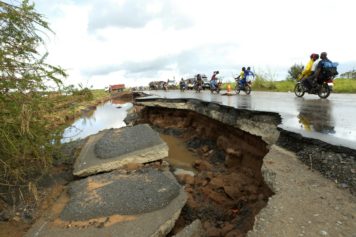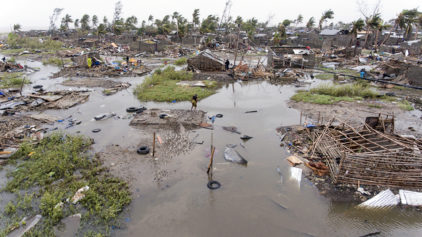Land still equals wealth, and in an increasingly cautious investing climate, many are turning to an old philosophy to put their money to work. New York’s Waldorf-Astoria Hotel played host to a conference on global agriculture investments. The event was organized by HighQuest Partners, whose managing director, Philippe de Laperouse, explained that with the demand for food increasing globally, and its future sources undetermined, investors are looking to move in on agriculture.
The center of this movement currently lies in Africa, where land and fresh water remain plentiful. “Africa has a tremendous future in terms of agriculture. Africa could feed much of the world,” Jes Tarp, CEO of Aslan Global Management, told NPR.
Mozambique, a southern African country approximately the size of Texas, is one of the hot spots for agricultural investments. Within the country, all of the land is owned by the government. Investors can lease the land for 50- or 100-year terms, for an extremely low price. Needless to say, the scenario benefits investors in the extreme long term.
For the country’s impoverished citizens, however, increased corporate presence can mean the loss of livelihood. Though the land is government-owned, Mozambique is home to a large number of farmers, who work on the land to make ends meet. When land is sold to investors, it can mean the displacement of established farms and workers, if the company decides to work differently. Schools, villages and medical clinics can become compromised when the ground they’re built on is transferred into foreign control.
In some villages, companies that gain control of the land will simply plow over the crops of the local farmers. Such was the case in the small village of Ruasse, where Hoyo-Hoyo Agribusiness paved over the local crops in favor of their own plantations and use the water with little care for the villagers, who rely on it to drink. Instead, the water is carried away in large tanks to feed a potato field.
“This whole community has just one river; this one here,” said one of the villagers. “By the month of August, this river will be all dry.”
Though some companies develop larger corporate farms to employ the Mozambique natives, there is little long-term support and government protection against foreign abuse is non-existent. Agricultural investments are becoming more and more popular in other countries like Ethiopia and Tanzania as well, and Africa’s importance in the global economy could be on the rise. However, these countries must take precautions in order to protect the interests of their own people and secure their own future.


